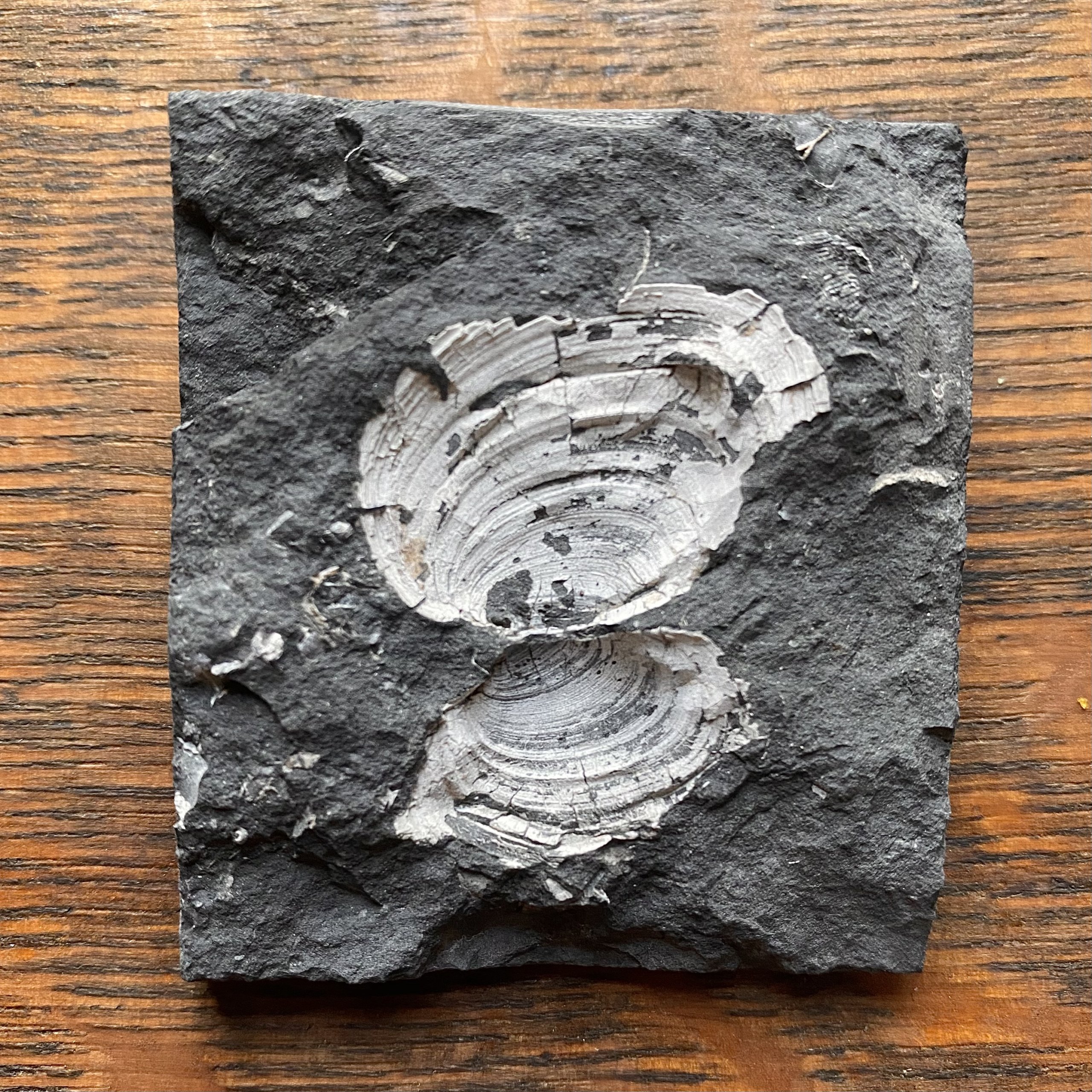Astartella concentrica
326.4 – 247.2 MYA
Scientific Classification
Kingdom:
Animalia
Phylum:
Mollusca
Class:
Bivalvia
Order:
Veneroida
Family:
Astartidae
Genus:
Astartella
Species:
concetrica
Conrad 1842
Catalog Number: CG-0104
The Carboniferous clam species, Astartella concentrica Conrad 1842, has been found in rocks dated from 318.1 million to 298.9 million years ago [1]. This is a range of 20 million years. The genus, Astarella, is found in a much more extensive range, 326.4 to 247.2, or 79.2 million years.
Two sides to a coin, two taxonomic opinions
In sharing photos of this specimen, I received two options on the genus. The fainter sample was considered Edmondia, while the white example was Astartella concentrica. This was relatively easy to do, as the two look like they would be different. Plus, I sent quick cell phone photos, not the higher-quality ones below.
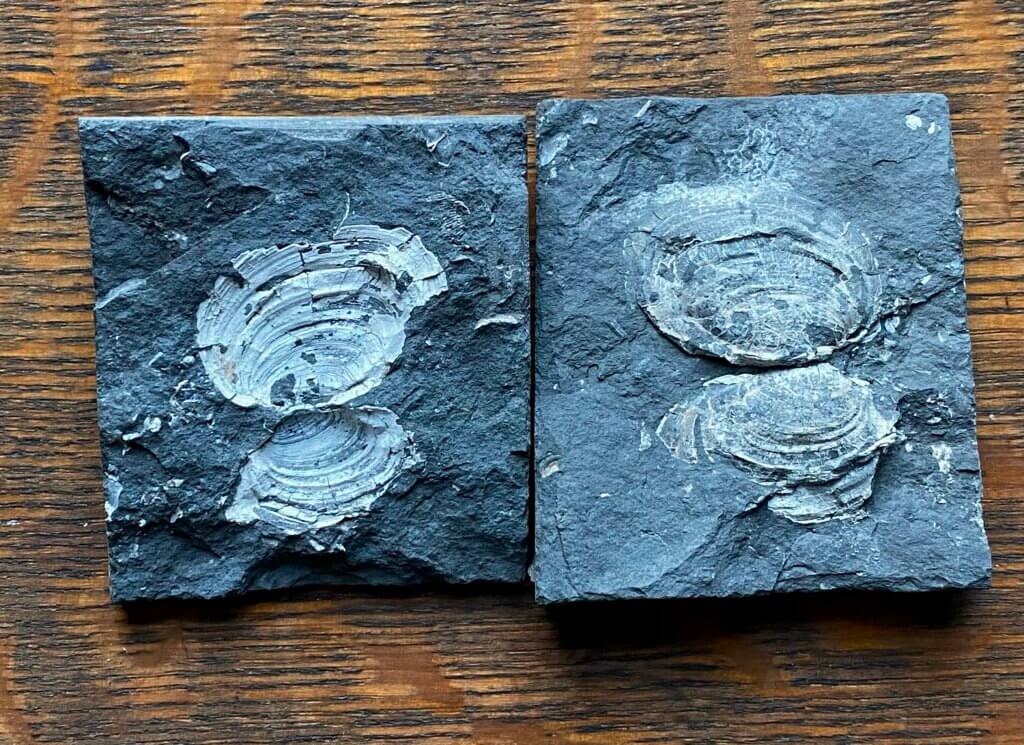
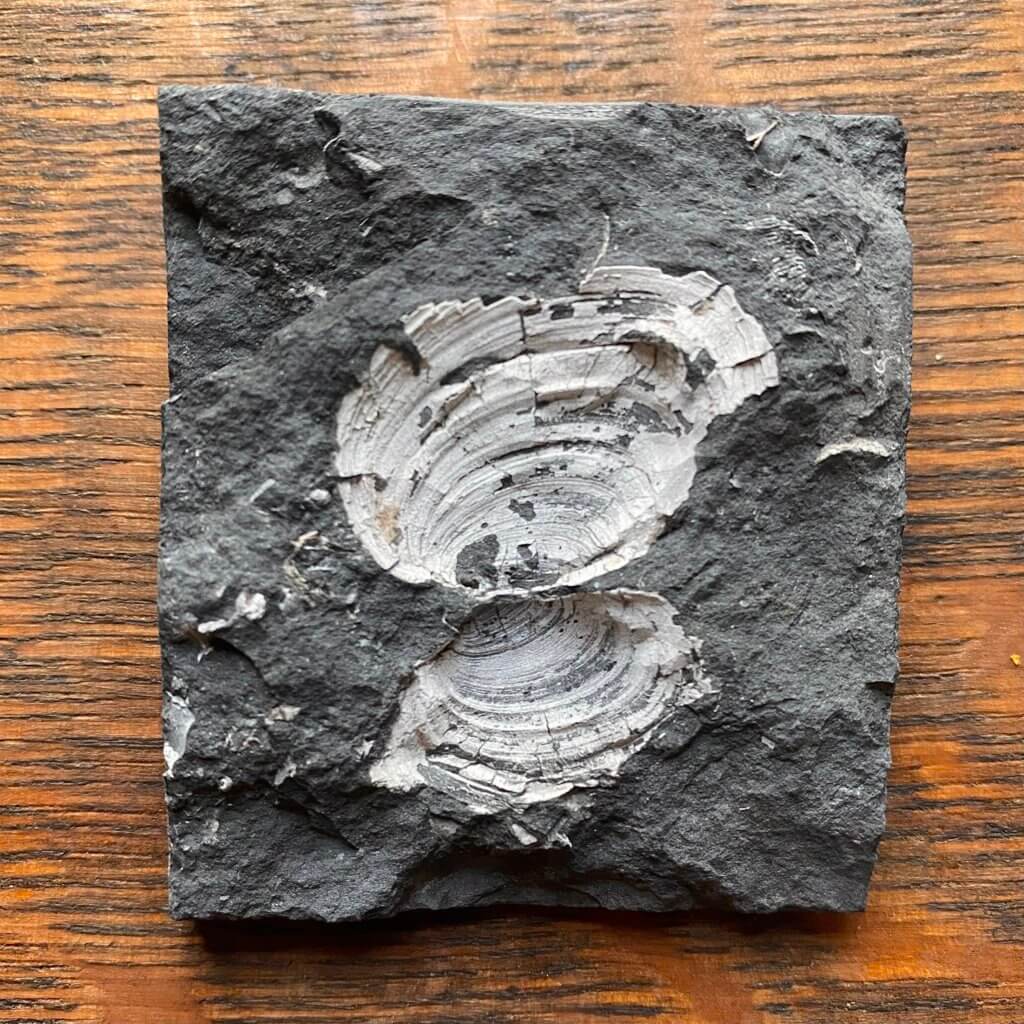
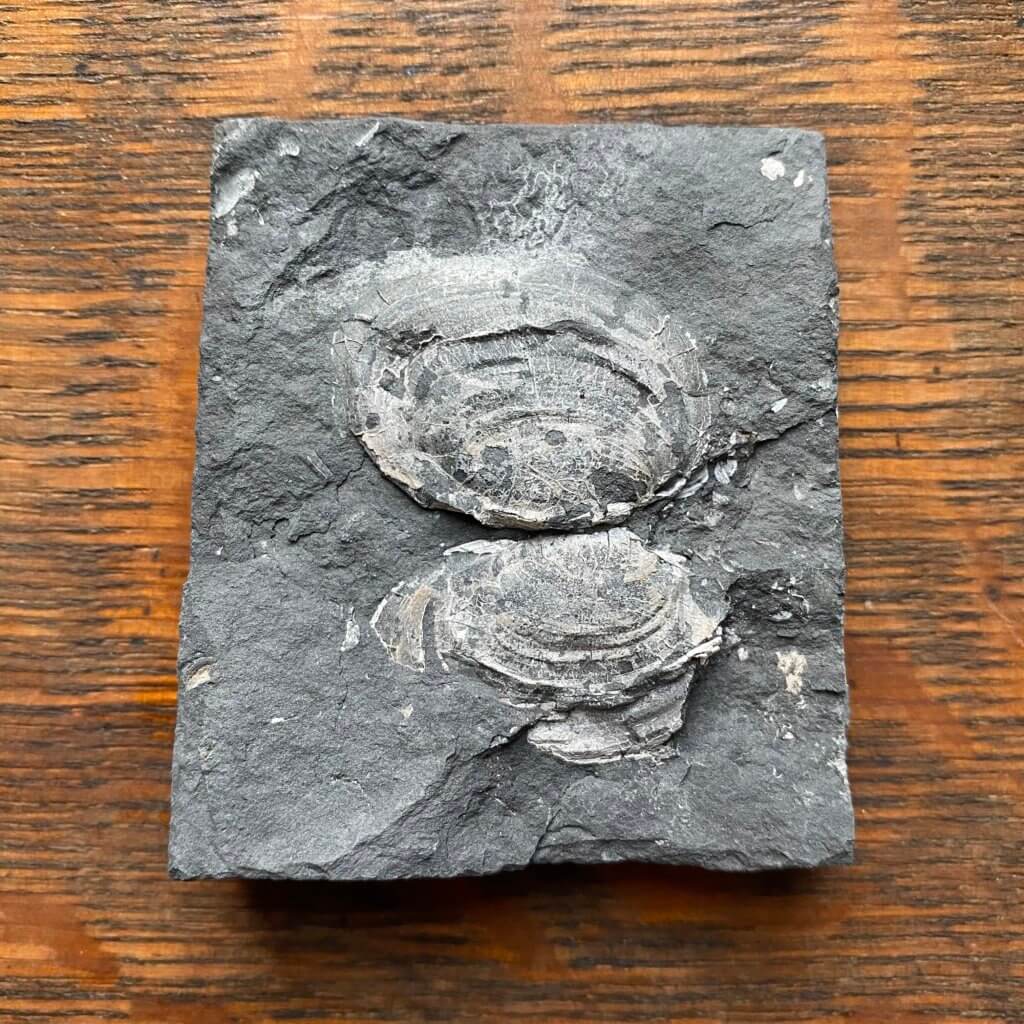
Conrad’s original specimen
In searching for the illustration of the specimen recorded by Conrad in 1842, the text on page 248 cites an illustrated figure at PL 15, fig 19. However, plate 15 only has 18 specimens figured. I thought I was looking at the wrong plate, but an adjacent write-up, N. appressa, is listed as PL 15, fig 4, and is indeed listed at that position. So it seems the illustration was omitted, or the number was printed incorrectly. The handwritten note does seem to indicate a misprint, so the error appears to be forgetting to illustrate figure 19.
The locality is of interest as well.
Locality. Inclined plane of the Allegheny mountain; No. 3, in bituminous shale overlying coal. (Carboniferous system.)
Page 248, T. A. Conrad, Observations on the Silurian and Devonian systems of the United States, with descriptions of new organic remains.
Joseph Leidy would later write about another specimen that T.A. Conrad borrowed from Charles A. Poulson. It was also found at Inclined Plane No. 3 in 1856, where the specimen Petalodus allegheniensis was discovered. So at least a few early local species readily found in the regional strata were first recorded from Inclined Plane No. 3, which is approximately fifty miles East of local rocks.

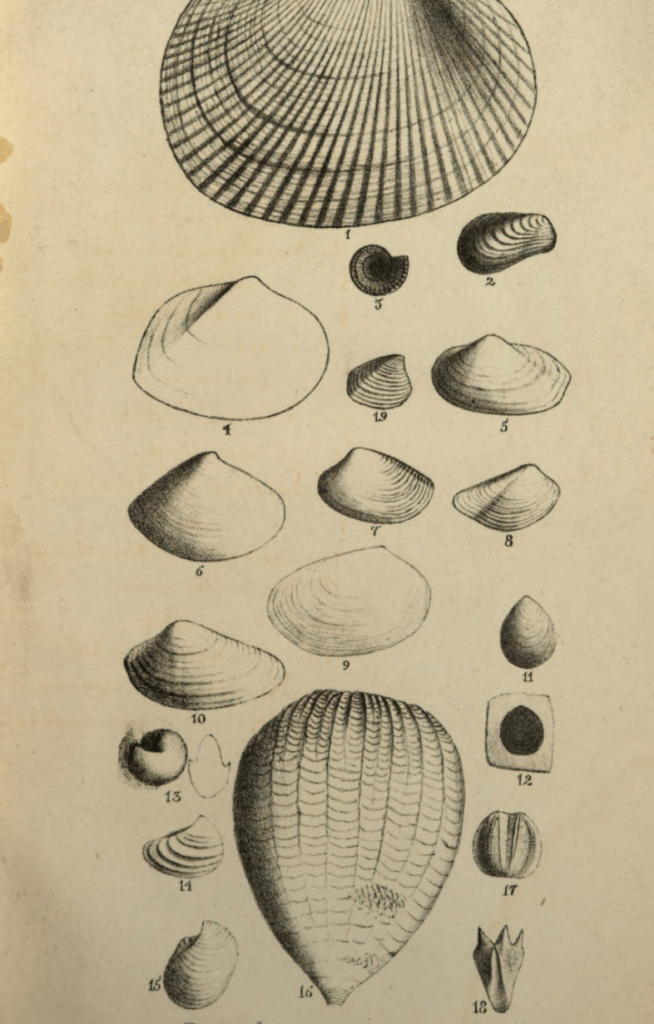
References
- http://fossilworks.org/bridge.pl?a=taxonInfo&taxon_no=95092
- T. A. Conrad. 1842, Observations on the Silurian and Devonian systems of the United States, with descriptions of new organic remains. Journal of the Academy of Natural Sciences of Philadelphia 8(2):228-280, https://babel.hathitrust.org/cgi/pt?id=hvd.32044107317794&view=1up&seq=83&q1=concentrica

